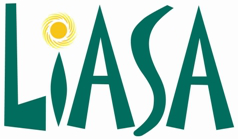Speaker
Ms
Lyn Steyn
(Fish Hoek Library, City of Cape Town)
Description
Conventional library philosophy is that outreach programmes attract patrons into the library, and that exposure to its services will encourage visitors to become regular users and consequently better readers (Broadley, 2010). In South Africa, many of us move between two universes on a daily basis, performing a balancing act between first and third world demands and rewards. The paper’s title recalls Philip Dick’s sense of alienation and his attempts to make sense of a world awash with hostile exclusion.
Some of Masiphumelele’s outreach programmes do focus on reading enhancement and comprehension; others aim to develop critical thinking and still others provide educational and social mentoring (Steyn, 2008). It is however possible that a library in a developing community should define its purpose and set its goals based on a broader perspective than the standard core function platform (Transformation Charter, 2009).
Whilst it can be deduced that participants value the programmes (over-subscription, regular attendance), performance evaluation and evidence of impact is lacking. This paper reports on a study of two groups of programme participants: English reading tutoring groups for Grades 5 & 6 weekly (two year period) and Careers Indaba for Grade 12s (annual event, daily sessions for three weeks in July). The majority have attended regularly for the full period of each project. Their use of the library before engagement in a programme is compared with their subsequent pattern of use; the purpose of their library visits is examined to identify any changes; and their understanding of the role a library does or should fulfil in community life is analysed.
It is the researcher’s assumption that despite the library being a popular meeting place, the children have not yet developed new habits and are not actually borrowing books or reading more. A questionnaire is used to test that assumption. A survey of 50 programme attendees by means of the questionnaire aims to determine whether or not the programme experience encourages the children to visit the library more often and to use more of its services. A second assumption is that participants benefited in terms of personal growth and social, cultural and educational confidence. Further research is needed to explore this assumption.
The development of project plans, proposals and funding requests requires accurate descriptions of goals and outcomes. The favourite goal of most libraries is the promotion of reading; a more realistic approach may be to consider a combination of social development and literacy goals when working in a developing community
Primary author
Ms
Lyn Steyn
(Fish Hoek Library, City of Cape Town)

